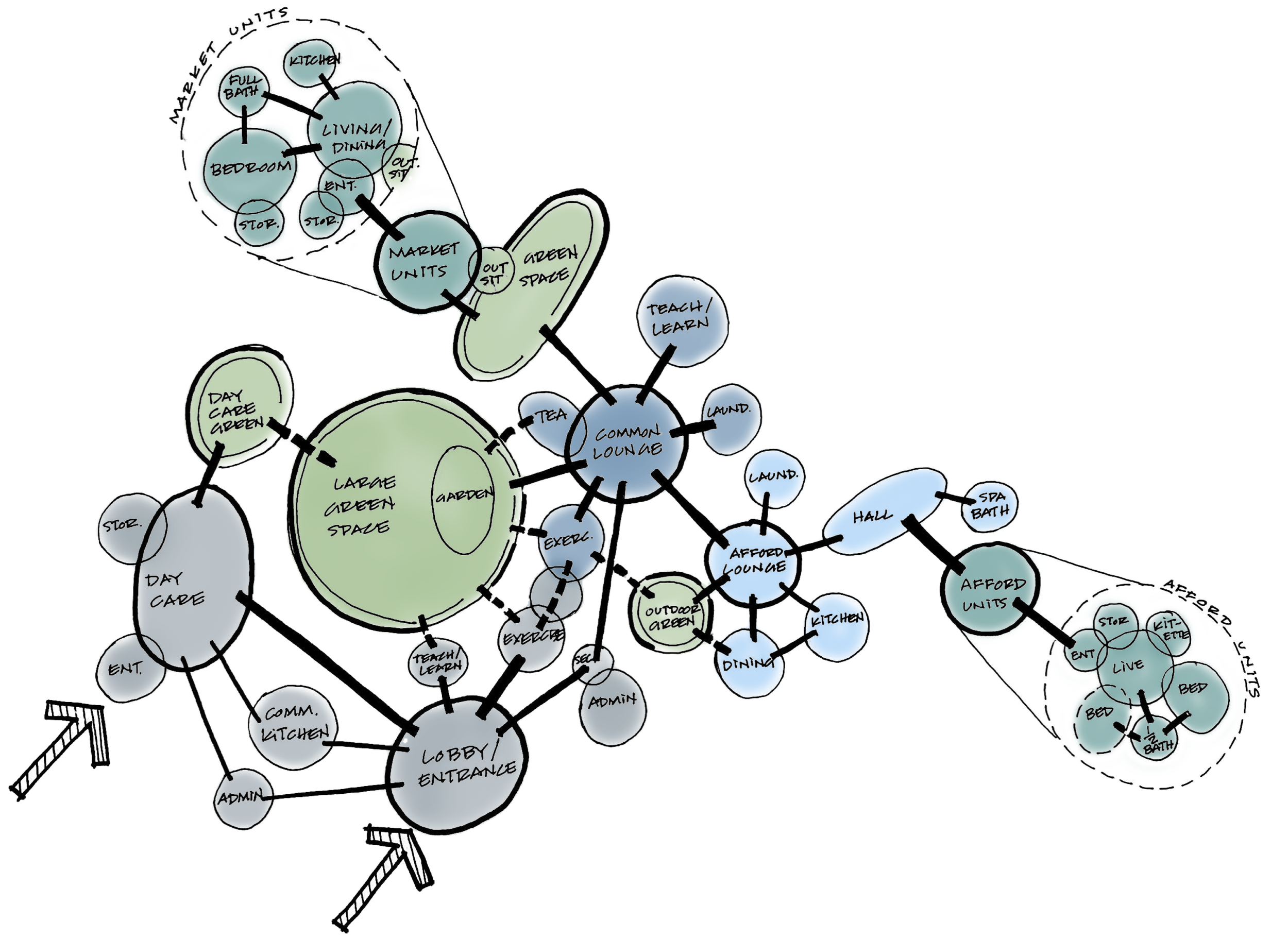Seniors and Intergenerational Purpose-Driven Housing Solutions
A growing number of older adults over 65 years of age are in need of affordable housing that meets their changing needs. In 2016, older adults made up 26% of the population in Peterborough and Northumberland County, accounting for the highest population age distribution increase since 2006. However, older adults in these areas are often excluded from housing conversations.
In 2019, the Community Training and Development Centre (CTDC) partnered with TDL to launch the Seniors and Intergenerational Purpose-Driven Housing Solutions project. The goal was to center the voices of older adults as experts in the topics of housing and home, identifying the types of housing required to ensure older adults can continue to lead independent lives that promote a strong sense of community belonging and easy access to social and healthcare amenities.
CTDC and TDL initially planned to conduct in-person workshops, but quickly adapted with the onset of the COVID-19 pandemic to conduct virtual and asynchronous engagement between 2020 and 2021. Findings from engagement with older adults led to the development of a purpose-driven housing model for older adults living in both Peterborough and Northumberland County.
Guided by curiosity, the project began by asking:
What does the existing housing landscape look like for older adults living in Peterborough and Northumberland County? What are the unique housing needs and preferences of older adults in these areas?
Who was involved?
In partnership with CTDC, the project involved two years of engagement with 28 older adults in Peterborough and Northumberland County. Representatives from 7 service providers that provide support to older adults, including housing and healthcare services, were also engaged in the project.
What was TDL’s role?
TDL was responsible for conducting virtual focus groups with older adults and developing an asynchronous activity workbook. TDL also conducted interviews and virtual focus groups with service providers in Peterborough and Northumberland County to get a better sense of the current programming and service delivery landscape.
What types of engagement occurred?
Interviews
In 2019, members of the TDL team conducted interviews with service providers representing ten community organizations in Peterborough and Northumberland County. Initial findings allowed the TDL team to get a better sense of the current programming and service delivery landscape for older adults, and informed the creation of an asynchronous activity workbook.
Activity Workbooks
In October of 2020, workbooks were developed and distributed to older adults in Peterborough and Northumberland County in partnership with Meals on Wheels. Workbooks were also advertised through a local radio station, and physical copies were delivered directly to older adults who expressed an interest in participating in the project. The workbook was divided into four sections, and provided a platform for older adults to voluntarily share their housing preferences and needs through a range of short answer, checkbox, and sticker activities. The workbooks were intended to take between 60-90 minutes to complete, and once completed, were mailed or emailed back to the TDL team who were available via phone or email to answer any questions. The activity workbook enabled the TDL team to safely gather feedback about older adult’s housing preferences from 28 older adults during the COVID-19 pandemic, when in-person gatherings were not possible.
Virtual Focus Groups
Informed by feedback from activity workbooks, two virtual focus groups were hosted in 2021 via Zoom, to refine ideas for a purpose-driven housing model. The first focus group centered the experiences and recommendations of older adults; the second focus group invited service providers and housing professionals to contribute ideas. The sessions used bubble diagrams to visually illustrate some of the key themes identified in activity workbooks, and gauge perspectives on proposed housing models.
What was learned?
Everyone is an expert in home.
Historically, older adults in Peterborough and Northumberland County had been excluded from housing conversations, leading to outcomes that ignore their changing needs. By centering older adults as experts in housing and home, the project not only demonstrates that older adults have unique contributions to housing conversations, but also that their participation is valuable and cannot be captured by only engaging with service providers. The overwhelmingly positive response by older adults in Peterborough and Northumberland County to voluntarily complete activity workbooks showed that older adults want to be heard in housing discussions. Some participants even inserted extra pages into the workbook to share personal reflections on their experience navigating housing and creating a sense of home.
Established community networks are critical to successful recruitment.
Recruiting participants in the midst of a pandemic required strong collaboration between TDL, CTDC, and CTDC’s existing network of community partners who had existing relationships with older adults in Peterborough and Northumberland County founded on trust. Meals on Wheels was one partner organization that successfully distributed workbooks to older adults through their existing community food program.
Resist assumptions about participant involvement based on perceived abilities.
Older adults are often portrayed as a demographic that faces technical barriers to engaging via virtual platforms such as Zoom. As a result, the TDL team wasn’t sure how much participation they would receive from older adults during the COVID-19 pandemic, when it was not possible to host in-person engagement. The enthusiasm that older adults brought to asynchronous workbook activities and focus group conversations via Zoom demonstrated that older adults appreciate both virtual and asynchronous formats. In some cases, participants noted that virtual formats were preferred as hosting an in-person engagement session may have posed transportation or other barriers to their participation in the project.
Project Partners
Community Training and Development Centre

